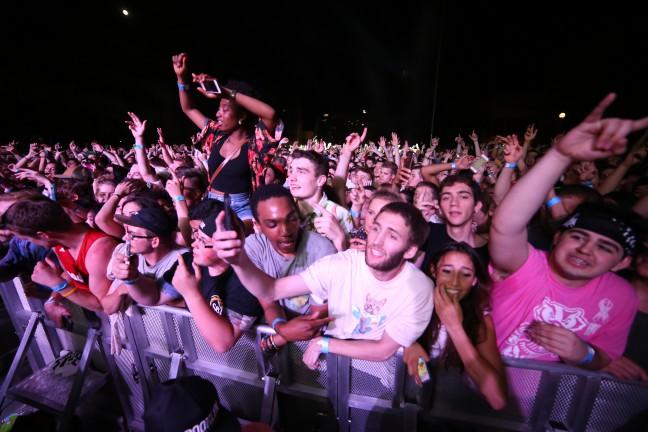Madison is home to a vast music scene, consisting of a variety of genres and venues ranging from The Orpheum to the High Noon Saloon to The Frequency.
Music lovers in Madison are sure to visit at least a handful of shows — if not many more — throughout their time in Madison, whether they’re University of Wisconsin undergraduates or locals. For some, however, these concerts come with an added risk.
Some, like Emily Mills, a Madison-based journalist, have observed the music scene and its various shows have proven to be not the safest space for women, gender non-conforming individuals and people of color.
Concert attendees and musicians alike are subjected to many issues regarding equity, from issues of safety and harassment for fans at shows or unfair treatment for musicians at certain venues, Mills said.
Enter Consent, Amplified, a project to be a part of an ongoing conversation on safety, equity and harassment and to try to actively change how the music scene in Madison addresses these issues of discrimination.
Mills, one of the organizers and its mediator, said the project is split into two parts. One is a panel discussion, aimed as a presentation to actively discuss issues surrounding harassment and inequality and find concrete solutions. The other is an online survey for members of the Madison community to either anonymously or publicly share their own life experiences before and after the event takes place.
Mills said the panel will consist entirely of women from different backgrounds in order to ensure women are at the forefront of the conversation about an issue that highly affects them.
“There have been so many panels where there’s like a token woman, or a token person of color, and it’s usually a bunch of guys having this conversation,” Mils said. “[The event] doesn’t discount the experiences of people who are not [women], by any means, and I want everybody to show up and be a part of the conversation, but we’ve centered men’s voices for so long.”
Scott Gordon, editor of Tone Madison and co-organizer, and Mills also sought to include a diverse assembly of women to include varying, unique perspectives and a more representative viewpoint of the crosscutting inequalities that affect individuals’ experiences in the same space.
This event aims to be inclusive, by revealing inadequacies in safety and equity at music shows in regards to not only the perspectives of women and femme-presenting individuals, but also in regards to the unique experiences of gender nonconforming individuals and people of color.
Through this, Consent, Amplified aims to provide a safe space for many individuals to share these experiences of discrimination, and acknowledges the importance of intersectionality, or the crosscutting of identities.
“From just listening to these people tell me things over time, that the amount of harassment and misunderstanding that they face is much, much greater than pretty much anybody else,” Mills said.
The panelists will also be Madisonians who are more than familiar with how the city operates in terms of its entertainment, Mills said.
As moderator, Mills hopes to include the survey submissions, in order to both include participants in the conversation and to show that they’re not alone in their experiences, leading to a more open, safe space once the panel discussion ends and a Q&A session begins.
This Q&A session provides a space for the audience to discuss and reflect on their own experiences, and center around people whose voices rarely are heard.
Mills’ main goal as moderator of this event, however, is to not only facilitate conversation, but facilitate openness and honesty. She wants people to feel comfortable sharing stories that might be traumatic in nature not only without fear of a negative response, but with the expectation of a positive one.
“I want this to be a place where people can come and hear these stories and sort of commiserate and know that one, you’re not alone, two, it’s not your fault when this stuff happens to you and, three, that we shouldn’t stand for it,” Mills said. “It shouldn’t just be the status quo that you just have to deal with when you’re at a show.”
The discussion will take place on Nov. 15 from 7 p.m. to 10 p.m. at the Arts & Literature Laboratory, a venue for many art exhibitions, discussions and even music events.


